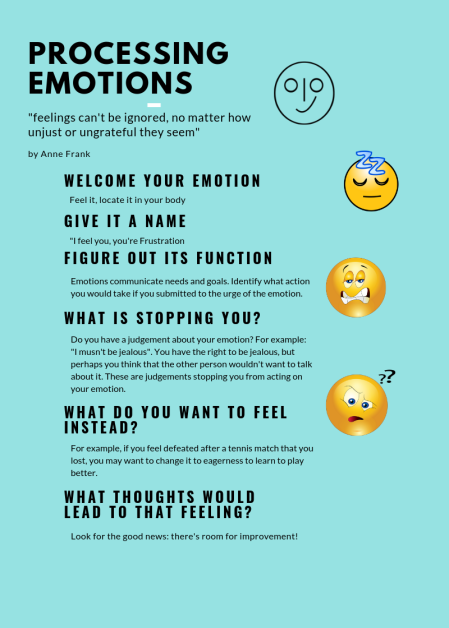In my post Gaming – How to put kids in control I wrote about the research we carried out: our four sons kept a journal of their motivations to game, their emotions before and while gaming each time they started to play a computer game. Observing themselves this way they concluded:
- Gaming is most fun if they play with friends, and
- Gaming does not feel good if they start it to forget negative emotions or to postpone a task.
They thought that they would be in control of their gaming if they would always start playing for the expectation that it would be fun. When they are not in control, they start playing for one of these reasons:
- suppress negative emotions,
- postpone a task or
- pass the time.
In this post I will discuss the first of the reasons, i.e. not willing to deal with negative emotions.
When your teen decides to play a computer game instead of processing a negative emotion, he suppresses that emotion, leaving it unprocessed. Unprocessed emotions lead to stress. So what does it mean to process an emotion? How does one know whether an emotion has been processed? We think very often that we have dealt with an emotion and still it keeps coming back. Again, I did some research and found some useful information.
Here is how we process an emotion:
- Turn toward your emotions with acceptance: become aware of the emotion and identify where you sense it in your body
- Identify and label your emotion: “This is anger” or “This is anxiety”
- Accept your emotions: don’t deny the emotion. Acknowledge and accept that it is there.
- Realize the impermanence of your emotions: even if the emotion feels overwhelming, remember that it will pass.
- Inquire and investigate: ask yourself: what triggered me? Why am I feeling this way?
- Let go of the need to control your emotions: be open to the outcome of your emotions and what unfolds.
source: https://www.gottman.com/blog/6stepstomindfullydealwithdifficultemotions/
So this is when you can submit to your emotion and act on it. However, it’s not always possible. For example, I don’t think I want my 15 year old son to beat me up or scream into my face when he’s angry at me. So how do you process emotions that urge you to do something that is not acceptable? You change those emotions:

The most important step for teens is to understand that processing their emotions is just as important as physical exercise. They have to find time for it: when lying in bed alone with their thoughts and emotions, or sitting on the backseat of the car, or walking to school.
